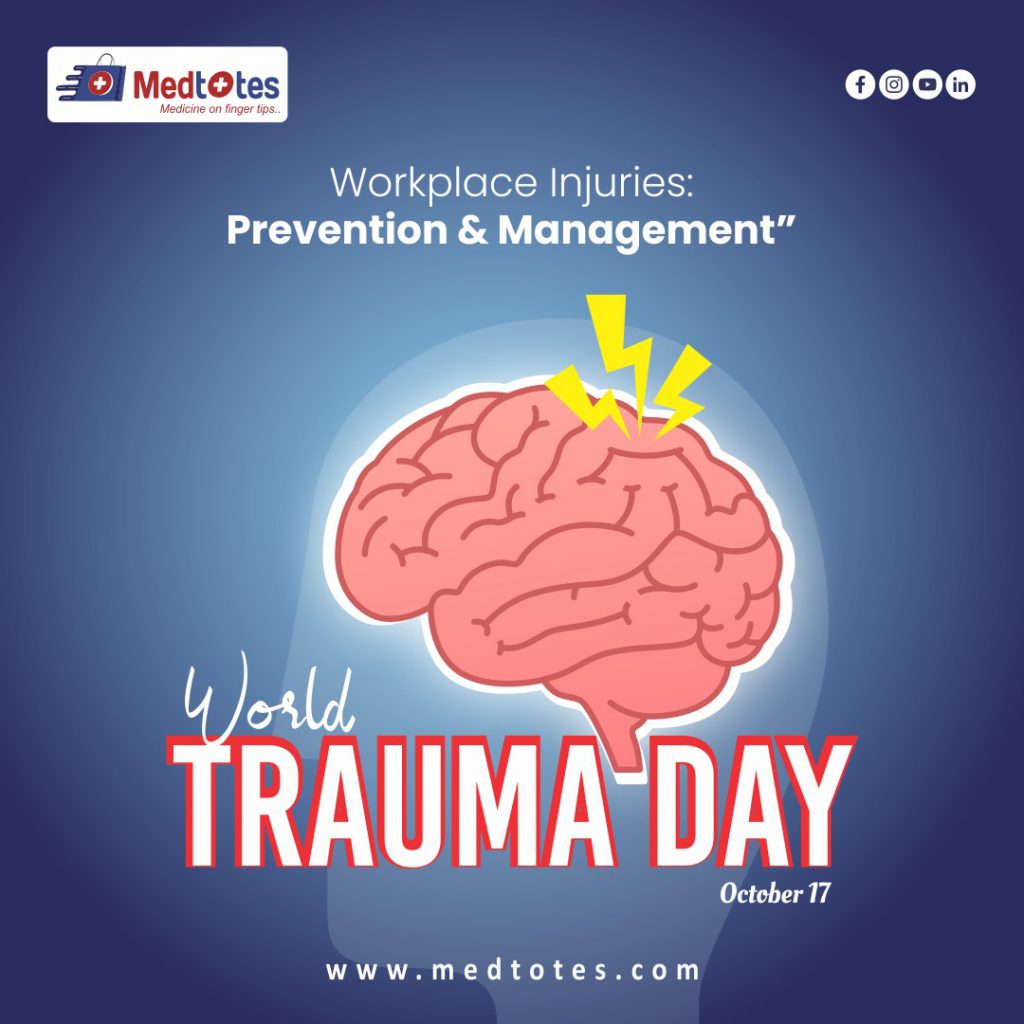INTRODUCTION
Every year on October 17th, World Trauma Day is observed to raise awareness about the impact of trauma, promote preventive measures, and highlight the importance of proper trauma care. With millions of people around the world experiencing trauma due to accidents, natural disasters, violence, and other incidents, this day serves as a vital reminder of the urgent need to address trauma as a global health priority.

World Trauma Day 2024: “Trauma Care is a Public Health Responsibility”
This year’s theme, “Trauma Care is a Public Health Responsibility,” emphasizes the shared responsibility among governments, healthcare systems, and individuals in reducing the global burden of trauma. It calls for better infrastructure, more robust emergency services, and education at all levels to mitigate the devastating impact of trauma-related incidents.
The Growing Burden of Trauma
Trauma can result from various causes, such as road accidents, falls, burns, violence, and natural calamities. According to the World Health Organization (WHO), traumatic injuries account for nearly 10% of global deaths each year, making them a leading cause of mortality and disability. In fact, road traffic accidents alone claim over 1.35 million lives annually, with many more suffering from non-fatal injuries that can result in long-term disabilities.
The Importance of Immediate Trauma Care
One of the key aspects of trauma care is the “golden hour”—the critical first hour after an injury occurs. Research shows that patients who receive appropriate care within this timeframe have a significantly higher chance of survival and better long-term outcomes. Unfortunately, in many parts of the world, especially in low- and middle-income countries, access to timely and adequate trauma care remains limited.
World Trauma Day encourages governments, healthcare organizations, and communities to invest in better emergency medical services (EMS), training for first responders, and trauma centers equipped to handle critical cases. Awareness campaigns also focus on educating the public about basic first aid measures that can be taken before professional help arrives, as well as encouraging preventive steps to reduce trauma occurrences.
How Trauma Affects Mental Health
In addition to physical injuries, trauma can have long-lasting effects on mental health. Post-Traumatic Stress Disorder (PTSD) is a common condition among survivors of traumatic events, leading to anxiety, depression, and other emotional challenges. Early psychological intervention is crucial in helping individuals recover not only physically but emotionally as well.
Promoting Prevention: Simple Steps to Save Lives
While trauma is often unavoidable, especially in situations like natural disasters or accidents, there are preventive measures that can significantly reduce the risk. On World Trauma Day, the emphasis is placed on the following actions:
- Road Safety Measures: Encouraging the use of seat belts and helmets and obeying traffic rules can drastically lower the number of road traffic injuries.
- Workplace Safety: Ensuring that employees in high-risk jobs have proper safety gear and training can prevent workplace accidents.
- Fire Safety: Implementing fire safety protocols and ensuring that homes and workplaces are equipped with fire extinguishers and smoke alarms can reduce the impact of fires.
- Disaster Preparedness: Communities need to be better prepared for natural disasters through awareness, drills, and emergency response systems.
Let’s make World Trauma Day a reminder to act—because saving lives starts with awareness.
